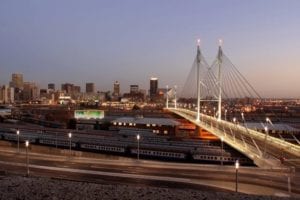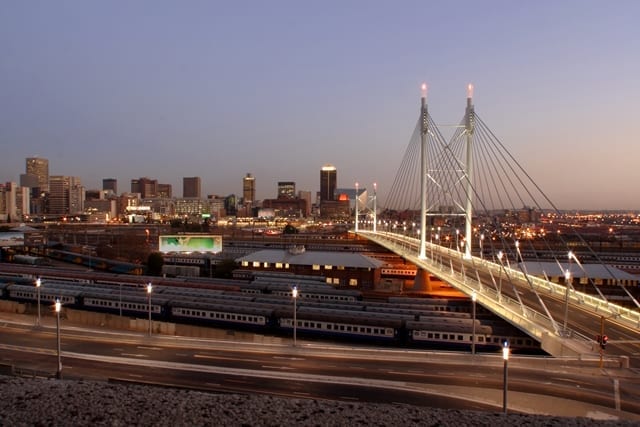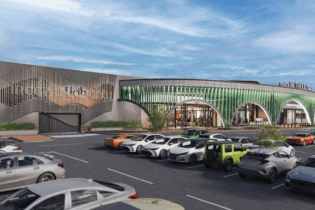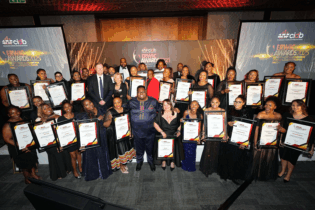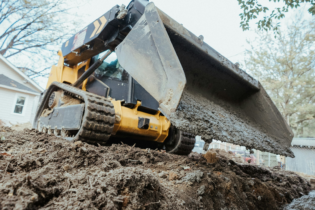Infrastructure investments
With regards to infrastructure, he was proud to report that most government departments had spent 99% of their infrastructure budgets. “This is commendable, given the history of underspending on infrastructure in this province,” he said. Makhura said that between 2013 and 2016, Gauteng spent R30 billion on infrastructure development. He said this investment helped with the creation on 92,000 jobs and increased government revenue by R6 billion. He also emphasised the importance of developing new infrastructure and maintaining the province’s existing infrastructure across all sectors.Transport infrastructure
Makhura said public transport is a key driver of industrialisation and re-industrialisation of the Gauteng city region. With regard to road infrastructure, the province is spending R 7.2 billion to upgrade and expand all major roads that connect and integrate the different development corridors and key economic nodes of Gauteng over the next three years. Some of these projects include:- Upgrading the central corridor on William Nicol from the PWV5 (Jukskei bridge) to the N14 in Diepsloot.
- The N14 from Diepsloot to the Hendrik Potgieter intersection will link Tshwane, Johannesburg and the West Rand communities.
- Evaton Road from Adams to Selbourne will also be upgraded.
- A new interchange will be built on R42 Barrage Road that will connect the new Vaal River City and Sharpeville.
- On the southern corridor, the R82 Old Vereeniging/Johannesburg Road will be upgraded from a single to a dual carriageway from Walkerville to De Deur.
- On the eastern corridor, Heidelberg Road from Leondale Forsdick Road to Barry Marias Road will be upgraded from a single carriageway to a dual carriageway.
He also touched on the expansion of the Gautrain and the challenging e-toll system.
Makhura said that although there are extensive plans to develop rail and road infrastructure in Gauteng, he assured the public that government would proceed with future infrastructure plans in an open manner. Future projects will be handled in this manner to avoid conflicts, as seen with the non-compliance of commuters when it comes to paying their e-toll bills. “We can’t build infrastructure such as roads and only come back to people later to inform them that they must pay,” he said. “They can’t be told later that this infrastructure we are building is going to be paid for, we must be transparent with residents.” He confirmed that a feasibility study into the expansion of the Gautrain has been completed and said the train service will be extended to areas such as Mamelodi in Tshwane, Boksburg in Ekurhuleni and Jabulani in Soweto. Makhura also mentioned that initial work regarding the development of the new Lanseria Airport City and Vaal River City has started. However, he said delays in the rollout of bulk infrastructure have slowed down construction of these projects.

